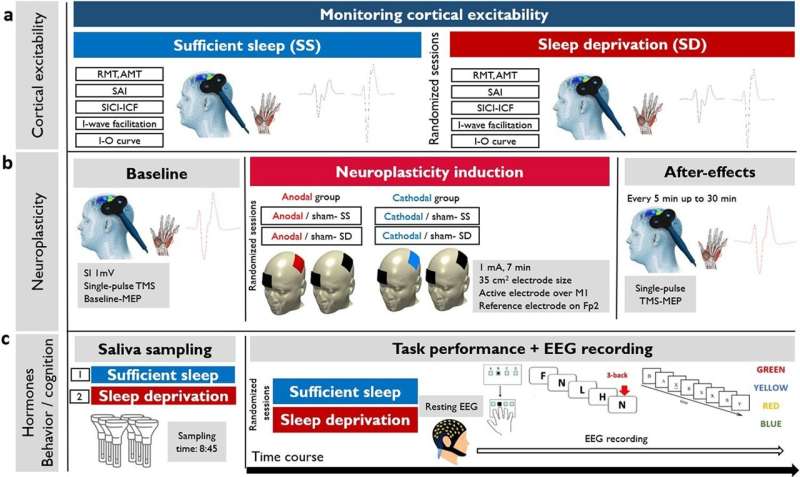
Anyone who has ever had a night of poor sleep or no sleep at all knows how much the lack of sleep can affect concentration the next day. Researchers at the Leibniz Research Center for Working Environment and Human Factors have studied how exactly sleep deprivation affects brain performance. The results show that not only brain activation, but also the alteration of connections between neurons is affected by sleep deprivation. Both have a significant effect on memory performance and working memory.
Sufficient sleep is essential for optimal daytime performance. A lack of sleep not only impairs attention, but also memory and learning processes. To encode new memory content, connections between neurons in the brain are strengthened or weakened during wakefulness. This process is called neuroplasticity. During sleep, relevant connections are further strengthened, and irrelevant ones weakened.
In case of sleep deprivation, this weakening of irrelevant connections does not take place. Cortical excitability remains increased, which leads to impaired signal transmission. New, external stimuli and information can therefore only be processed poorly or not at all and learning becomes more difficult. That increased cortical excitability disturbs neuroplasticity. This means that cerebral overactivity makes it more difficult for the neurons to shape connections.
Optimal excitability of the brain could prevent diseases
However, there is a difference between complete sleep deprivation and working against personal sleep and wake phases (chronotype). In the latter, brain excitability and neuroplasticity are reduced during suboptimal times of day. In sleep deprivation, however, excitability is increased. Especially in demanding activities, working in accordance with one’s chronotype can improve work performance.
Since brain plasticity and excitability depend on sleep, it could play a role in preventing diseases with cognitive deficits. Examples of such diseases are Alzheimer’s disease, which is often accompanied with sleep disturbances, and major depression. With depression brain activity and neuroplasticity are reduced, and this could be counteracted upon by sleep deprivation, a well-introduced antidepressant treatment.
The study is published in the journal eLife.
Leibniz Research Centre for Working Environment and Human Factors

